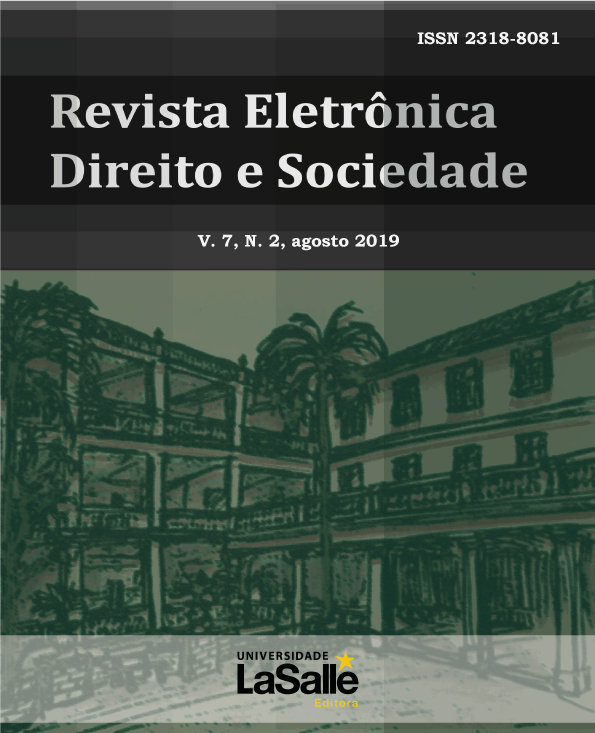A internação forçada de adultos que fazem uso abusivo de drogas
DOI:
https://doi.org/10.18316/redes.v7i2.6000Palavras-chave:
Compulsory Commitment to Hospital, Drugs. Mental Health, Legal Capacity, Competence.Resumo
This study is about compulsory commitment to hospital (against one’s will or without consent) of abusive drug user adults (drug addicted). The problem under research consists of evaluating, from the legal viewpoint, the legitimacy or not of impose such measure, and further to analyze the requisites and assumptions concerning the exceptional application thereof. The investigation was based on Constitutionalization of Private Law, doctrine, legislation and case law. Discusses the conflict or tension between formal freedom and paternalism to justify or reject interfering on the existential sphere in the situation under analysis. Based on Michel Foucault’s lessons, the investigation highlights the inappropriate confusion of concepts such as capacity-personality, disease-interdiction, madness-danger, drug abuse-incapacity, commitment to hospital-interdiction, which leads to distorting the rationale for commitment to hospital. Upon revisiting and disentangling those categories, aims at demonstrating the limits of the traditional dogma of the incapacities’ system to face the topic. Thus, points out that committing someone to hospital neither depends on nor results from a process of interdiction. The research sustains that caring for health of a person with abusive drug use is the only constitutionally admissible option for his compulsory commitment to hospital, considering that any other function such as punishment, segregation or isolation are unconstitutional. Drug abuse affects mainly a person’s self-determination (self-control), but not necessarily the ability to understand and to express oneself (legal capacity). Furthermore, the classification of “habitual drinkers and drug addicts”, as relatively incapable is discussed. The thesis is not in favor of compulsory commitment to hospital; however, it does not completely exclude it either. It should be a subsidiary, temporary action which presupposes that there is not enough non-hospital mechanisms (outpatient) and the need to protect the person to be committed.Downloads
Publicado
Edição
Seção
Licença
Autores que submetem seus manuscritos para serem publicados na Revista REDES concordam com os seguintes termos:
Os autores declaram ter ciência de que mantém os direitos autorais concedendo à REDES o direito à publicação.
Os autores declaram ter ciência de que o trabalho submetido será licenciado sob a Licença Creative Commons atribuição não-comercial que permite o compartilhamento do artigo com reconhecimento da autoria e publicação nesta revista.
Os autores declaram ter ciência que em virtude de os artigos publicados nesta revista tem acesso público e gratuito.
Os autores declaram, sob as penas da lei, que o texto é inédito e original e que têm ciência de que identificada a existência de plágio, os autores plagiados serão informados – para querendo, tomarem as medidas legais nas esferas cível e criminal – e, os autores do plágio terão seu acesso à revista bloqueado.
Os autores declaram que – em caso de coautoria – todos contribuíram significativamente para a pesquisa.
Os autores obrigam-se a fornecer retratações e (ou) correções de erros em caso de eventual detecção.
Os autores obrigam-se a não publicar o texto submetido a REDES em outra Revista eletrônica (ou não).

A Revista Eletrônica Direito e Sociedade - REDES - está licenciado com uma Licença Creative Commons Atribuição-NãoComercial 4.0 Internacional.
Baseado no trabalho disponível em http://revistas.unilasalle.edu.br/index.php/redes/about/submissions#copyrightNotice.
Podem estar disponíveis autorizações adicionais às concedidas no âmbito desta licença em http://creativecommons.org/.

